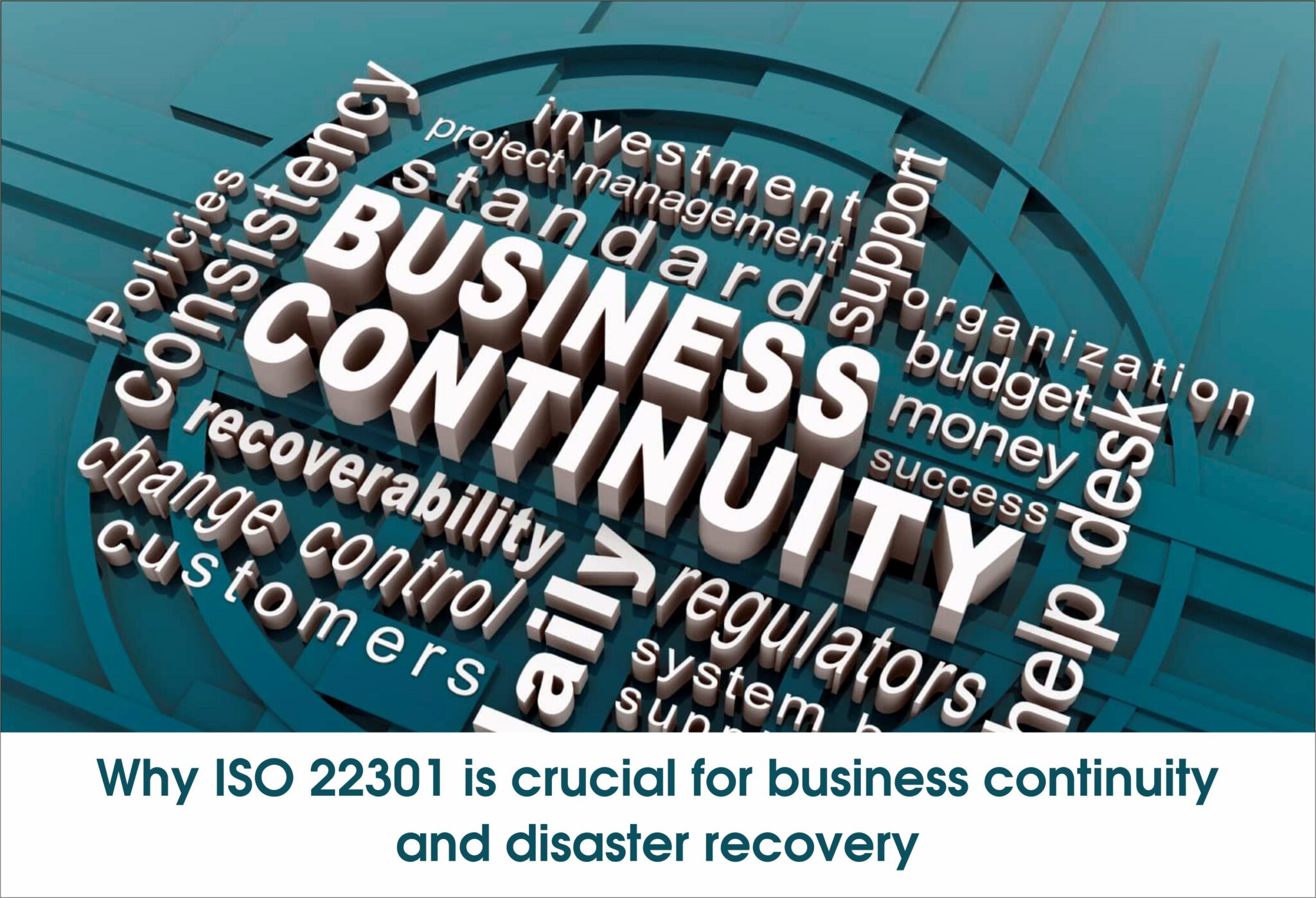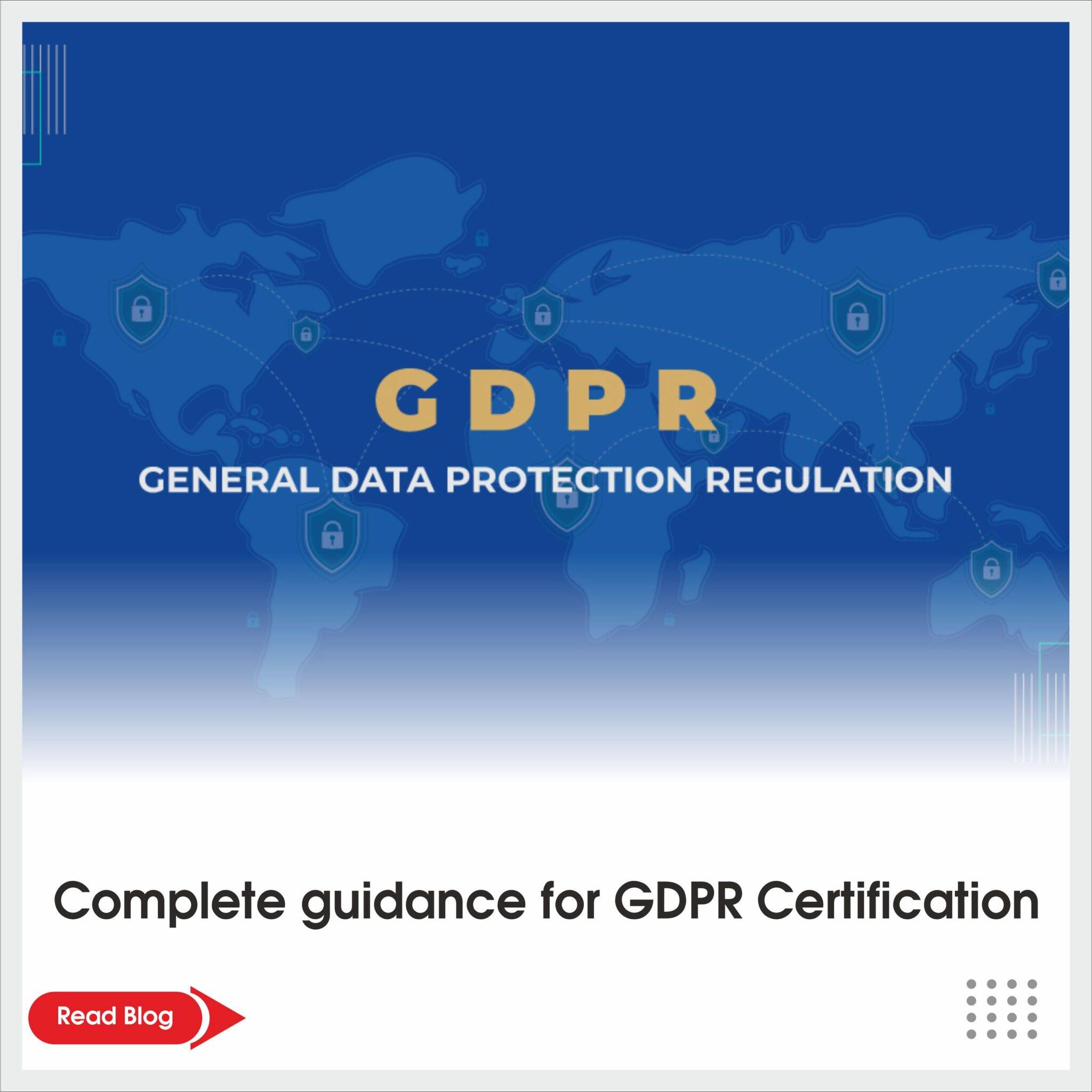What is ISO 22301:2019 Certification?
ISO 22301:2019 is an international standard for Business Continuity Management (BCM). It is designed to help organizations protect their business operations from disruptions and ensure the continuity of services. The standard outlines the best practices for developing, implementing, operating, monitoring and maintaining a Business Continuity Management system. It also provides guidance on how to respond to incidents and manage risks associated with them. ISO 22301 helps organizations plan for potential disruptions and minimize the impact on their operations. Your continuity management plan’s ISO 22301 accreditation assures that it will continue to operate normally even in the event of an emergency.
ISO 22301 Certification Business Continuity Management System (BCMS) Certification benefits for an organization ⮯
– ISO 22301 standards outline a step-by-step plan for creating and keeping up efficient business continuity management operations and it reduces the impact of events by taking a forceful stance.
– It helps to indicate compliance with influencers and stakeholders across all sectors and organizations.
– An efficient BCMS ensures the avoidance or minimizing of losses in the event of calamities, protecting the revenue stream.
-The adoption of a BCMS based on ISO 22301 shows that the company complies with legal and regulatory standards, which reduces the likelihood that it will face sanctions for breaking the law.
-Business continuity management thoroughly evaluates the impact of the disruption to determine the products and services that are essential for the organization’s existence.
ISO 22301 standard, business continuity management system, disaster recovery planning, risk management ⮯
In today’s uncertain world, business continuity planning has become paramount for organizations of all sizes. The ability to navigate through unexpected disruptions and maintain operations is crucial for long-term success and survival.
The importance of business continuity cannot be overstated. It ensures that a company can continue to deliver its products or services, meet customer demands, and minimize the impact of any potential crisis or disaster. It is not just about surviving in times of adversity but also about thriving and gaining a competitive edge.
Business resilience is the key to weathering storms and emerging stronger on the other side. By proactively identifying potential risks, developing strategies to mitigate them, and implementing robust crisis management protocols, organizations can significantly reduce downtime and financial losses.
Disruptions can come from various sources such as natural disasters, cyber-attacks, or even global pandemics like COVID-19, having a solid business continuity plan is no longer an option but a necessity.
A well-prepared organization can effectively respond to crises by quickly adapting its operations, ensuring employee safety, maintaining customer trust, and minimizing the negative impact on its bottom line. Moreover, businesses that demonstrate resilience in times of adversity often gain credibility and trust from stakeholders including customers, investors, and employees.
How ISO 22301 Helps Businesses Mitigate Risks and Minimize Disruptions ⮯
In today’s fast-paced and unpredictable business landscape, organizations face various risks and disruptions that can significantly impact their operations. This is where ISO 22301 comes into play, offering a robust framework to help businesses mitigate risks and minimize disruptions.
ISO 22301 focuses on disaster recovery strategies, emergency response plans, and incident management procedures. By implementing this standard, businesses can proactively identify potential risks and develop comprehensive plans to address them effectively.
One of the key benefits of ISO 22301 is its emphasis on business continuity management. It helps organizations establish a solid foundation for maintaining critical functions during unexpected events such as natural disasters, cyber-attacks, or supply chain disruptions.
By having well-defined emergency response plans in place, businesses can ensure a swift and coordinated response to any incident. This not only minimizes the impact of disruptions but also enhances the organization’s resilience in the face of adversity.
Furthermore, ISO 22301 promotes a proactive approach to risk management. It encourages businesses to regularly assess potential threats and vulnerabilities while continuously improving their disaster recovery strategies. This enables organizations to stay ahead of emerging risks and adapt their plans accordingly.
ISO 22301 Certification Requirements ⮯
ISO 22301 certification requirements are essential for organizations looking to establish and maintain an effective business continuity management system. Achieving this certification demonstrates a commitment to mitigating risks, ensuring the continuity of critical operations, and safeguarding the interests of stakeholders.
To obtain ISO 22301 certification, organizations must adhere to specific requirements outlined by the International Organization for Standardization (ISO). These requirements encompass various aspects of business continuity management, including risk assessment and analysis, business impact analysis, development of a business continuity plan, implementation and testing of controls, and ongoing monitoring and improvement.
One key requirement is conducting a thorough risk assessment to identify potential threats and vulnerabilities that could disrupt operations. This involves analyzing internal and external factors that could impact the organization’s ability to deliver products or services. Based on this assessment, organizations must develop strategies to mitigate identified risks effectively.
Another crucial requirement is performing a comprehensive business impact analysis (BIA). This process helps determine the potential consequences of disruptions on various aspects such as financial stability, customer satisfaction, reputation, legal compliance, and employee safety. The BIA findings guide the development of a robust business continuity plan tailored to address specific risks identified during the assessment phase.
Implementing controls to minimize disruption is another important aspect of ISO 22301 certification. Organizations must establish procedures for incident response management, crisis communication protocols, backup systems for critical infrastructure or data repositories, and alternate work arrangements during emergencies or disasters. Regular testing and evaluation of these controls are necessary to ensure their effectiveness in real-world scenarios.
Furthermore, organizations seeking ISO 22301 certification must demonstrate their commitment to continuous improvement by establishing performance metrics and monitoring mechanisms. Regular audits help identify areas for enhancement while providing evidence of compliance with ISO standards.
ISO 22301 Certification cost
The cost to become certified to ISO 22301 is not set in stone. It relies on a variety of variables, like your company’s complexity, overall staff, number of office branches, branch location, etc. Additionally, organisations having ISO 22301 certification may frequently meet their quality goals for a lesser cost than non-certified organisations.




